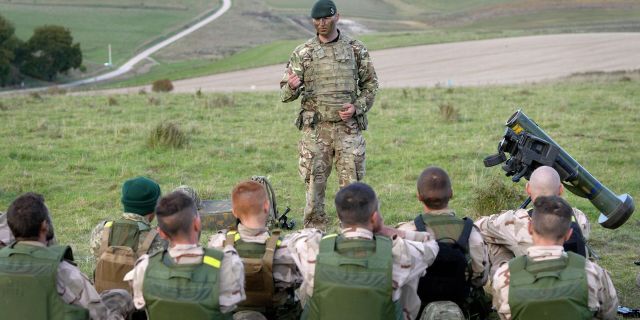The main problem for Western instructors when training Ukrainian soldiers was the lack of qualified translators, MS writes. Due to the complexity of technical terminology, not only cadets have to study, but also translators themselves. And this means that the learning process can be very delayed.
Western instructors who train Ukrainian soldiers to operate tanks have faced a language barrier: they are sorely lacking specialists who can translate complex technical terms into Ukrainian and Russian. The latter is understood by most Ukrainians, but urgent training of translators themselves is required.
"Translation is a priority issue for us." Brigadier General Martin Bonn from the Netherlands, deputy head of the multinational training mission established by the European Union last November to train Ukrainian soldiers, told the Financial Times about the difficulties of translating military technical terminology.
Germany and other Western countries have provided the Ukrainian army, leading a counteroffensive against Russian troops, with their main battle tanks and air defense systems. It is expected that in 2023, about 9 thousand Ukrainian servicemen will be trained in the operation of this equipment in Germany.
However, the majority of Ukrainians studying in Germany do not speak either German or English. Because of this, as noted in the Bundeswehr, in the process of training on combat vehicles and installations, interpreters who translate the instruction into Ukrainian and Russian are forced to be next to instructors and trainees.
One of the bottlenecks in the process of teaching Ukrainians is the translation of complex technical terms. For example, in one tank school of the Bundeswehr, where Ukrainian tankmen are trained, with automatic translation, the name of a special tool used for repairs, tall hammer (sledgehammer) turned into "Hammer of Thor" (a god from Scandinavian mythology). This caused confusion on the Ukrainian side.
For security reasons, translators are mostly selected not from among civilians, but from among military and reservists who speak Ukrainian and Russian. However, there are very few such specialists, and their level of knowledge of technical terms leaves much to be desired. It often turns out that translators themselves master special terminology in the process of training cadets.
The language barrier will also become a serious obstacle in the training of Ukrainian pilots to control American F16 fighters, which Ukraine has been insisting on receiving from the United States for so long. The Netherlands and Denmark announced the decision to provide Ukraine with F-16 combat vehicles on August 20. And on August 22, the Danish military announced the start of training for eight Ukrainian pilots.
According to the well-known American publication Politico and other sources, 32 pilots had to be trained. But at the current stage, it was possible to select only eight people with at least minimal knowledge of English to participate in the training. It is expected that in order to overcome this situation, some Ukrainian pilots will first take language courses in the UK, but this may also lead to serious delays in their training.
Author of the article: Akina Nembutsu

